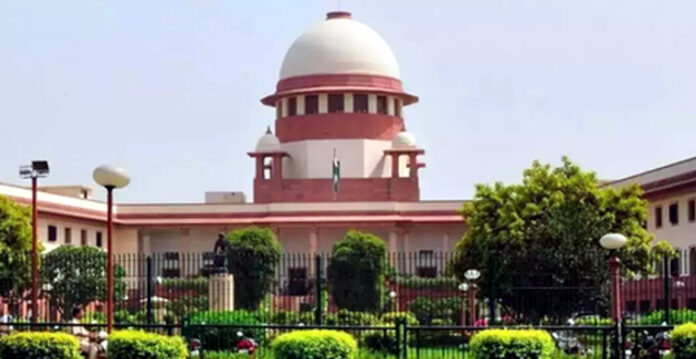The Supreme Court on Tuesday issued notice to the Centre and state governments on a petition challenging the validity of several provisions of the Waqf Act, 1995. At the outset, a bench headed by Chief Justice of India (CJI) B.R. Gavai indicated that it would dismiss the petition challenging the constitutional validity of the 1995 Act solely on the grounds of delay.
“We will dismiss on the grounds of delay. You are challenging the 1995 Act in 2025. Why should a challenge to the 1995 Act be entertained in 2025?” questioned the Bench, also comprising Justice A.G. Masih. In response, the petitioner’s counsel cited the notice issued in 2021 by the top court on a plea challenging the validity of the Places of Worship Act, 1991. Further, he contended that the plea questioned the constitutional validity of the Waqf Act, 1995, including the Waqf (Amendment) Act, 2013 and the Waqf (Amendment) Act, 2025.
Additional Solicitor General (ASG) Aishwarya Bhati, the law officer of the Centre, expressed that no difficulty should arise if the present petition is tagged with the pending batch of pleas challenging the Waqf Act, 1995. ASG Bhati said that the top court has already clarified that it would not hear the pleas challenging the Waqf Act, 1995, along with the clutch of pleas challenging the validity of the recently promulgated Waqf (Amendment) Act, 2025.
Also Read: Waqf Act will not be implemented in Bengal: Mamata Banerjee
After hearing the submissions, the CJI Gavai-led Bench issued notice to the Centre and state governments, and tagged the matter with the pending pleas challenging the validity of the Waqf Act, 1995. The plea filed before the apex court contended that the Waqf Act, 1995 is against Articles 14, 15, 21, 25, 26, 27 and 300A of the Constitution, and therefore, it must be “abrogated and a secular law should be enacted in spirit of the constitutional principles of equity, justice and good conscience”.
“The Act is made to administer the properties of Muslims, but there are no similar laws for followers of Hinduism, Buddhism, Jainism, Sikhism, Judaism, Bahaism, Zoroastrianism and Christianity. Hence, it is totally against the secularism, unity and integrity of the nation. Waqf is not mentioned anywhere in the Constitution,” the plea said.
It added that if the impugned Act has been made to protect the fundamental rights guaranteed under Articles 29 and 30, then the law has to cover all minorities, i.e., followers of Jainism, Buddhism, Sikhism, Judaism, Bahaism, Zoroastrianism, Christianity and not only Muslims.
(This story is sourced from a third-party syndicated feed. Raavi Media takes no responsibility or liability of any nature. Raavi Media management/ythisnews.com can alter or delete the content without notice for any reason.)


